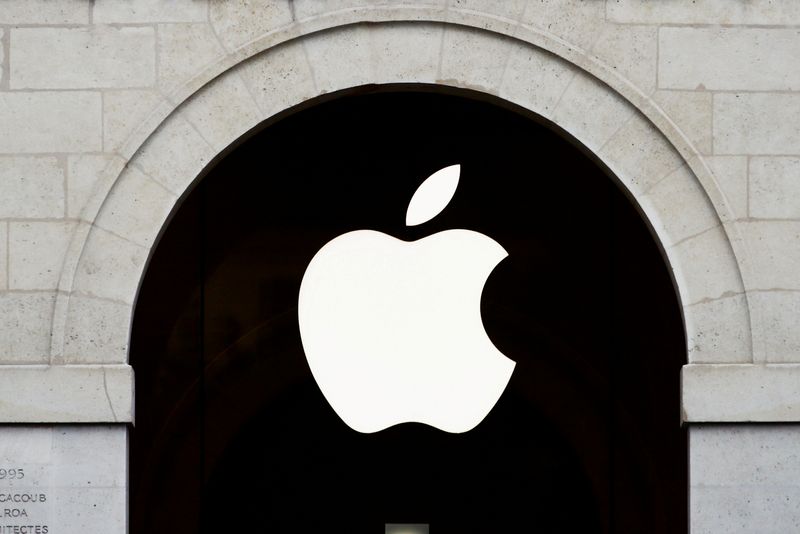By Stephen Nellis
(Reuters) – During the last three months of 2020, Apple Inc delivered its flagship iPhone 12 model weeks later than normal iPhone debuts and shuttered some of its stores due to the pandemic.
But Wall Street is still expecting a near-record sales quarter for the Cupertino, California company’s signature device when it reports fiscal first-quarter earnings on Wednesday, with estimates of $59.8 billion, according to IBES data from Refinitiv as of Jan. 26. If Apple beats the number, it could eclipse its all-time record of $61.58 billion in iPhone sales for the first quarter of fiscal 2018.
Analyst largely attribute the boost to the timing of the iPhone 12 lineup, which had a new look, 5G cellular data connectivity and new models at the top and bottom of the sizing range.
“They have an extremely good understanding of what their refresh cycle looks like and when waves are possible and whey they are not,” said Ben Bajarin, head of consumer technologies at Creative Strategies. “Every bit of data across China and Europe has shown that not only was the installed base getting older, but people were not refreshing. I think (Apple) knew it would be heavy refresh cycle.”
Analyst also expect strong Mac sales of $8.69 billion, according to Refinitiv data from Jan. 26, thanks in part to the introduction of models with the first central processor chip for its laptops and desktop that Apple designed itself. Overall, analysts expect $103.28 billion in sales and earnings per share of $1.41 for Apple’s fiscal first quarter.
A “super cycle” of booms in iPhone sales after several more modest years are not new to Apple – the company’s previous high came after it announced the iPhone X, with a new design. During previous cycles, Apple’s shares often traded at lower price-to-earnings ratios than its rivals due to Apple’s dependence on the iPhone.
But those ratios have risen over the past year, and analyst Toni Sacconaghi of Bernstein wondered how much further they can go.
“At 33x consensus (fiscal year 2021 earnings per share), and buyside expectations above the Street’s, we struggle to see case for material outperformance in (Apple), absent a surprise product announcement or migration to a bundled hardware subscription model,” he wrote in a note to clients.
(Reporting by Stephen Nellis in San Francisco; Editing by Lisa Shumaker)





